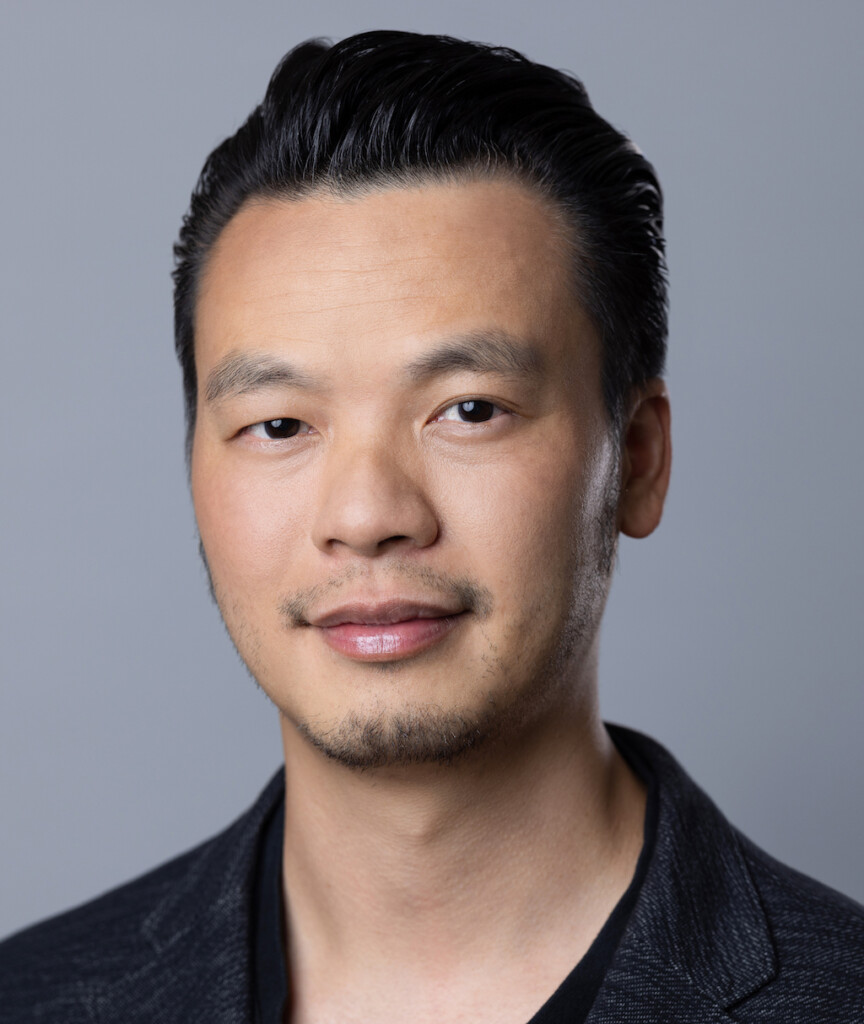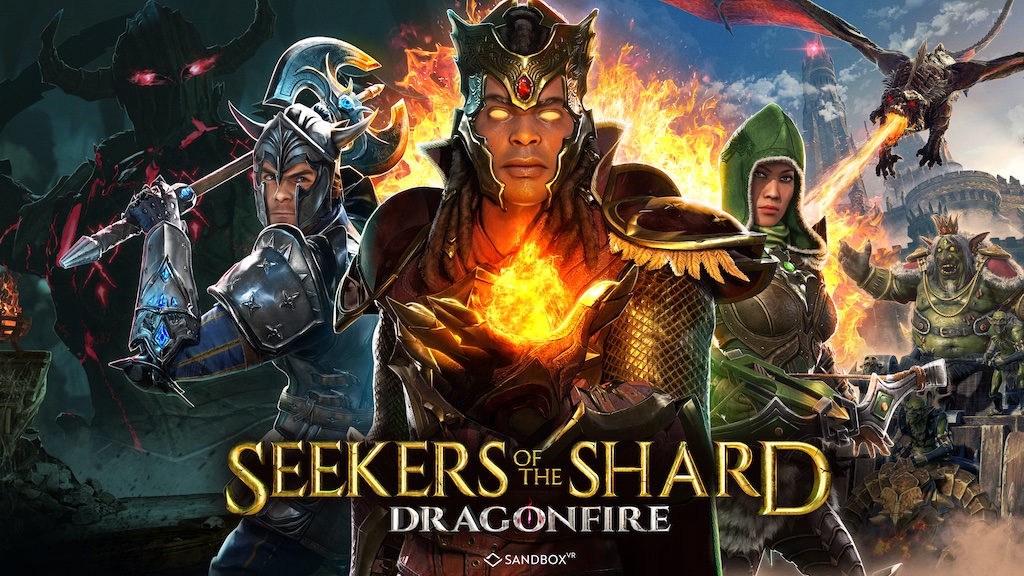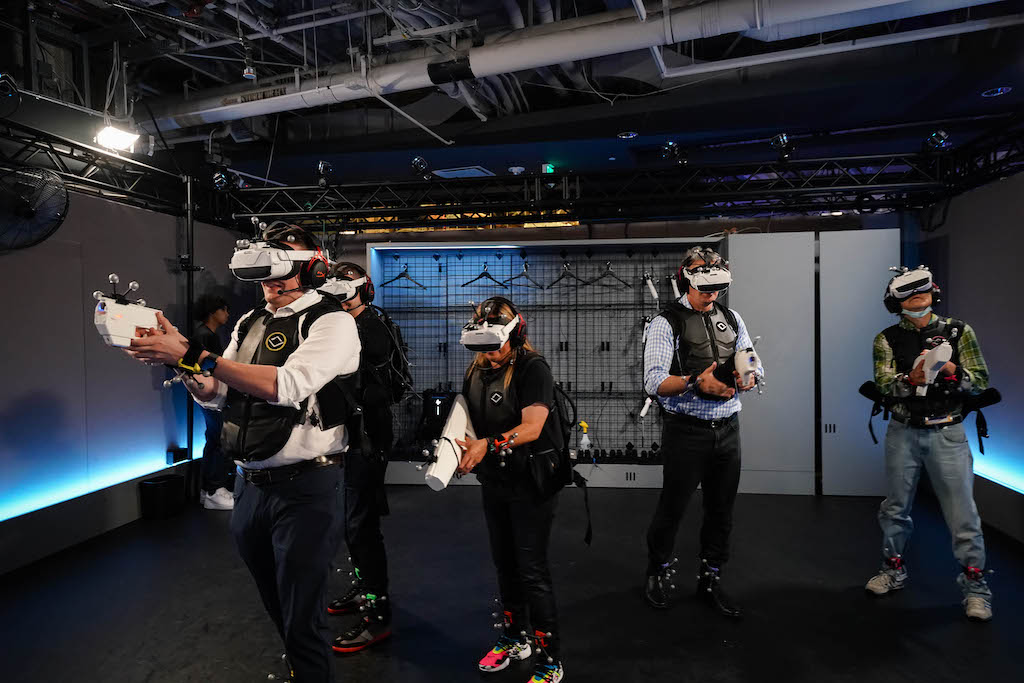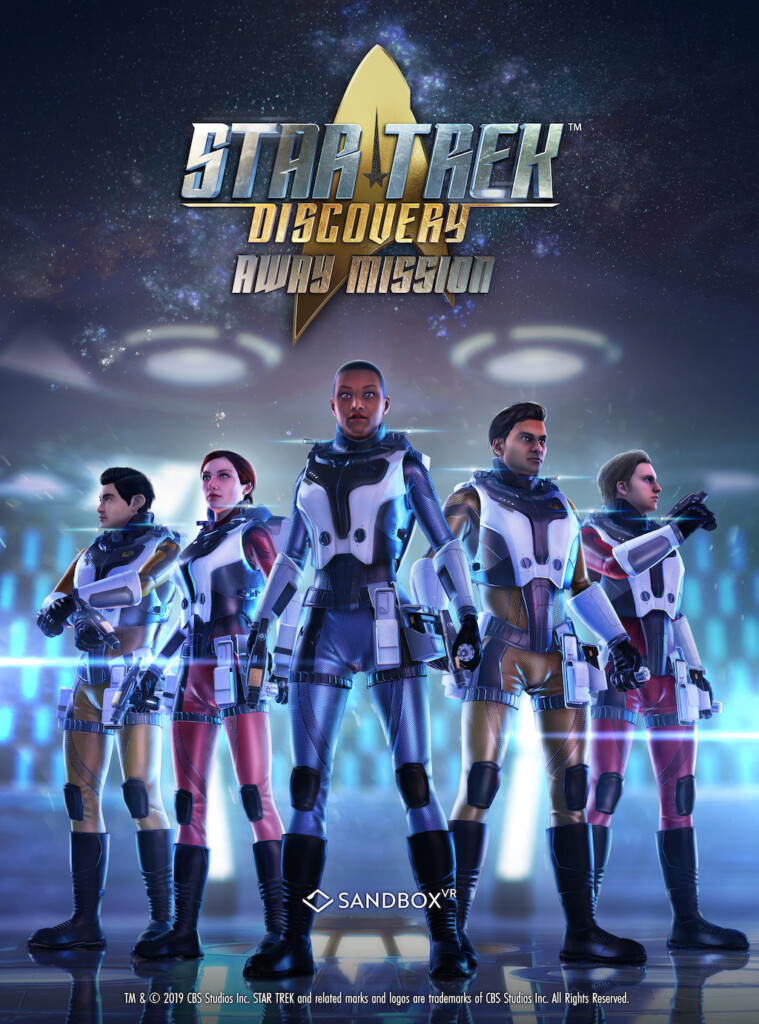Sandbox VR, a leading operator of immersive and compelling location-based virtual reality experiences, has partnered with Netflix to create a ‘fully immersive’ VR experience based on the South Korean thriller ‘Squid Game’.
The Sandbox VR x Squid Game virtual-reality experience is set to open late this year. It will transport players to multiple Squid Game locations, where they will compete in a variety of challenges inspired by the Netflix show to be the last one standing. After each game session, Sandbox VR will give players personalised highlight video reels capturing their in-game reactions and recapping their own Squid Game story.
Sandbox VR now operates in 36 global locations and is expanding rapidly. With a dozen 5,000+ square foot locations launched in the last twelve months, each with at least four holodecks which let guests experience the virtual worlds, Sandbox VR is the fastest-growing location-based VR startup in the world. It sells nearly 100k tickets every month.
A love of game design
Sandbox VR’s CEO, Steve Zhao, grew up in the Bay area, California.
“I was an 80s kid, which was very fortunate because, in my middle and high school, we had access to computers,” he tells blooloop. “I started to build games when I was in middle school.”
That continued when he went on to college, as something he did on the side to help pay for tuition.
“Then, after I graduated, it became a job,” he says. “My DNA has always been about game development and game design.”
Zhao founded Blue Tea Games in 2003, specialising in mobile apps and casual hidden object games for the PC. In the late 2000s, Blue Tea released the Dark Parables series, a franchise that became a number one best seller on Big Fish Games. However, as mobile gaming exploded at that time, the platform shifted away from the PC. Blue Tea failed to pivot:
“Mobile was a very competitive industry,” he comments. “We took a lesson, which is that when you try to build anything, don’t try to build what’s popular now. Try, instead, to see what the future holds. Because, by the time you’re done building it, it’s already 10 months too late.”
The origins of Sandbox VR
Sandbox started in 2016.
“We took that lesson: we asked ourselves, what is the future of VR? What we realised was that we didn’t really like the consumer VR that was happening at the time. VR is meant to be like being inside the Holodeck, being plugged into the matrix: ‘Ready, Player One…’ You’re not supposed to be tethered to a computer, just a floating hand with floating joysticks.
“We wondered if we could create what I call the minimum viable matrix. We looked at all the technologies available and realised, hey, we could: this would actually work. That’s how we set out to build the company: by building a great platform that enables full-body VR that you can play together with friends.”
The great achievement at the heart of what became Sandbox VR, the great differentiator, is the fact the technology allows the user to forget the technological interface. They can transcend disbelief and lose themselves in the experience. This is truly immersive VR.
That differentiation kick-started Sandbox VR’s journey. The team didn’t know, at this point, whether people were going to share their vision:
“We were fans ourselves, and had a very strong conviction that it was going to work,” Zhao says. We launched in Hong Kong; we began as a Hong Kong start-up. In Hong Kong, the great thing is that there are plenty of people. The bad thing is real estate is very expensive. We were just a small start-up. We didn’t have any money, so we managed to find a place without any foot traffic.”
The first venue
Despite being very cash-constrained, they managed to launch their first Sandbox VR venue. He comments:
“It was on the 16th floor of a very run-down building with pipes where water didn’t even work. Everything was leaking. We thought, let’s just get this product out there, and see what people think. What happened was that after a week or two of launch, people heard about our product, and loved it.”
“All of a sudden, we started selling out days in advance, for what turned out to be 100 days in a row. People would be skipping work to play our experience. They would skip flights. They posted pictures about it; it became a phenomenon.”
Premiering on the 16th floor of a high-rise in Hong Kong in 2017, Sandbox VR (though it was still named GloStation at this point) gained its foothold.
“We got our first official funding from an institutional venture capitalist. We thought, why don’t we bring this to Silicon Valley and see where to take it from there?” he explains. “That led to our journey in the US, to how we got funded by Andreessen Horowitz [and others], and we really started to build our locations across the US.”
Sandbox VR weathers the storm
Then came the pandemic.
“We lost everything,” he says. “Revenue dropped to over 100%. Not only were we not getting new revenue, but we also had to refund everyone that had purchased tickets. It was a nightmare in the most concrete form. As a startup entrepreneur, you try to think about stuff that can go wrong and pre-empt it. But no one ever predicted a once-in-a-lifetime pandemic to be one of those options.
“It got to the point where we were thinking, how are we going to get out of this?”
Fortunately, they had a lot of supportive partners, investors, and lenders. Additionally, he says,
“Foundationally, we also knew we had a really great product. We knew that people had loved Sandbox before the pandemic. And we knew that, as long as we could get past the pandemic, people would love it again. In fact, since people were really cooped-up in their homes, I realised that when things opened up again, they would want to get out and that when they finally got to go out, they would think of Sandbox.
“That was the foundational thing, and we fought like hell during those two years to make that happen. Fortunately, we did it.”
The appeal of VR
Zhao believes that in the future VR will become a primary platform for gaming:
“It’s a unique platform where you can actually be in-body in the world. There’s nothing else like it. Until now, everything else has been 2D screens. VR is the only medium where you can actually embody the world.”
There is, he contends, a lot of friction around doing that really well at home:
“Part of what Sandbox does is to create social worlds for people to experience VR. That’s the reason Netflix became interested in us. There has always been a love between Hollywood and gaming. We’re seeing that a lot of successful IP goes both ways. The model of IP from gaming crosses over and becomes successful in movies. So, you can have a TV show like the Last of Us, while on the other side, you can have TV IPs that translate well for games.”
The conversation with Netflix started when they were looking for a partner to bring some of the best IPS into a different medium where fans could be engaged in a different way:
“We turned out to be the company that they ended up partnering with.”
Squid Games virtual reality experience
The collaboration with Netflix started before the pandemic, he explains:
“Our first branded partnership was with CBS when we did Star Trek. We were very happy working with them; I felt the product turned out pretty well. Netflix loved it, but because of the pandemic we all had to do our own things.”
In 2021, Zhao initiated another conversation with Netflix:
“We talked about where we are today, and where we going; how many stores we have, how many stores we are opening, and what that could mean in terms of the number of tickets. We also talked about where our technology layer is going to be, and how we are improving our content over time.”
Unique content from Sandbox VR
Sandbox VR creates its own content:
“That is one of the key things that makes us different,” Zhao explains:
“We care a lot about content, and if you care a lot about content, you have to be the one to build it. There’s no way around it. That separates us from every other location-based experiential right now. Netflix came to try out the experience, and we talked about how we would love to work with them, and how we think the content would look on our platform. They realised that it made sense. That essentially spearheaded the conversation.”
Squid Games was compelling, capturing the public’s attention and becoming a global phenomenon:
“We love it,” he says. “It’s also interesting because if you were to bring it into VR anywhere except Sandbox, it wouldn’t work.”
He substantiates this:
“If you look at other VR location-based companies, generally they are rather like laser-tag. People will be shooting guns. They can’t be too close together, because tracking is very hard. It’s a difficult technology to solve.”
A collaborative and social experience
For Sandbox, meticulously accurate motion capture has been a priority from the outset:
“One of the things that we have done from the beginning is to make sure that people can put their hands on each other’s shoulders. That was a foundational piece of experience. We wanted to create highly social, highly interactive experiences.
“Squid game is not about shooting; it’s about being collaborative with your friends. Either you can work together, or you can sabotage one another. In order to be in that close proximity, the technology needs to be very precise and nuanced. Ours is.”
The focus on VR as a social experience is a key differentiator, setting Sandbox apart from competitors in the space.
“When you go out with your friends, we don’t think it’s important for you to be in a large arena just to shoot zombies, and to try to get a high score,” he comments:
“if you look at Sandbox, even though we do have zombie experiences with shooting, it’s really about social interaction and communication. When your friends are injured, you have to go up to them, put your hand on their shoulders, and save them. We see people holding hands, playing around as they move people away from danger. They tap each other on the shoulder.
“These collaborations are really important because this is about social interaction. In order to interact socially, you have to have a platform that enables that. We were the ones to build that platform. And if you build that great platform, you need to build content that can make the most of that platform, so that’s why we took things a step further, creating experiences that really require social interaction and communication to make it all work.”
The future of Sandbox VR
Touching on what his focus will be in the immediate future as technology evolves, Zhao says:
“One of the big changes we have made is that where everything was wired, now it is streamed really efficiently for six people. Streaming is foundational because you want to be able to use supercomputers to stream the content. You need high-quality content, rather than small phone processors in the headset.
“We will be building on that, but also trying to figure out what other layers of technology we can have just to remove all the bottlenecks of running a VR experience. That’s how we’re thinking about technology.”
In terms of content:
“We are very fortunate to be able to work with Netflix on Squid Game. We’re now thinking about what other great IPs we can work on in the future.
“We are also talking about what it means to expand outside the deck to the whole store, so you can create a lot of cool experiences outside the game rooms, fully activating the whole space. That’s one area we are excited about. With wireless, you can also create a lot: you can change the number of people who can play; you can change the direct duration, which can work for different types of content. At the end of the day, this flexibility allows you to build different types of content that fans will love.”
A franchise approach
As far as growth is concerned, he adds:
“In the US, we are talking pretty much about company-owned growth, but a lot of what we do for other countries is about franchising. The Sandbox we have in London is franchise-operated, as is the one in Germany, which is opening multiple locations now.
“We are also seeing a lot of traction right across Europe and across the Middle East. We are spearheading that growth so we can create a truly global brand. We’ve been able to do this because we have been able to show that the stores in the US have a certain level of profit margin that makes this a super competitive proposition.”
For a franchise model, the approach to profit is slightly different, he explains:
“The most important thing about profit margin when it comes to franchising is that a company-owned store must have a stronger profit margin because when you franchise it, a percentage of that profit goes back to the franchisor. For them, it’s a matter of ‘OK, even if I run it as a franchise business, this is still, in terms of economic sense, something that will be more competitive than any other franchise opportunity out there.’
“This is something that we have to ensure and something that we have been able to demonstrate with the stores in the US, quite apart from the fact that we are also running the most cutting-edge technology, the most impressive branded IP games, and the most compelling experiences for millennials and Gen Z.”
Offering shareable and memorable fun
At least one new store is opening every month, so one focus will be on driving that growth.
Zhao comments:
“We’re very lucky in having found great real estate partners in the US that we are able to work with. One of the things that attracts them is that Sandbox has highlight videos that share each player’s experience. It’s something that we have built from the ground up with our platform, and that you can also take away with you, and put on your social media channels.”
“What that does is create really strong word-of-mouth organic usage. Every customer is a marketing piece for other people around them. We’ve been able to show that over 90% of our customers book ahead online; these are millennials. To be able to show that we can bring millennials to a destination is really encouraging for the landlord. They see us as a sort of experiential anchor and are able to provide real estate terms along those lines.”
The Sandbox VR x Squid Game virtual-reality experience will open in late 2023.
























